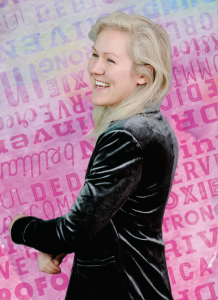Laura Kiessling, founder, & Laura Strong, CEO
Quintessence BiosciencesWomen in STEM—science, technology, engineering and math—can be hard to find. In fact, less than 25 percent of STEM positions are held by women, according to a 2011 report by the U.S. Department of Commerce. And that makes Laura Kiessling’s story—of co-founding Madison’s protein-based cancer therapeutics company Quintessence Biosciences—all the more impressive.
Following a “free-wheeling childhood” filled with curiosity, outdoor exploration and gifts of science kits from her mother, Kiessling began her undergraduate studies at UW Madison, and then moved on to the Massachusetts Institute of Technology, later earning her graduate degree in organic chemistry from Yale. After that? Yet more post-doctorate studies in chemistry and biology at the California Institute of Technology.
From a breadth of job opportunities, Kiessling chose to come back to Madison in 1991 and set up a lab on the UW campus to delve into the depths of carbohydrates’ biological role. Her lab—which itself required fundraising, budgeting, recruiting and training, much like a business—set the groundwork for Quintessence in more ways than one.
On campus, Kiessling met and married Ron Raines, who ran a bioscience lab. The couple, both of whom had patents coming out of their labs, started tossing around the idea of starting a business to use some of these technologies.
During a mutual sabbatical in 1999—and just after the birth of their first child—the two decided to test the waters, slowly. They pitched the idea to investors, negotiated with the Wisconsin Alumni Research Foundation and found a space. But, they both already had full-time jobs they didn’t plan to leave, and were in no hurry to push the business forward.
That is, until one promising graduate student, intrigued by what she’d heard of the business, stepped forward and offered to help. Laura Strong, with a Ph.D. in organic chemistry, then became Quintessence Bioscience’s first employee.
“I didn’t want to be at the bench on the traditional career track for chemists,” says Strong, referring to the typical academic or pharmaceutical options. Instead, she stepped into a role at Quintessence that felt unfamiliar but exciting. She had always loved science, but the further she got in her education, the more she realized she didn’t want to be a hands-on scientist, but would rather support the research. Her new role at Quintessence would let her do just that, while participating in something scientifically exciting.
So, to prepare for her new role, she enrolled in a few business development courses, then dove into writing the business plan.
“You can have the coolest science, but if you can’t translate that into a product and make money, you don’t have a business,” Strong says.
Considering its main focus on creating a new type of protein-based cancer treatment, you would think funding would pour in. But in the Midwest, and Wisconsin especially, there isn’t a lot of capital to go around. “Failure is less acceptable here,” Kiessling surmises, so investors are leery.
And West Coast investors, while more willing, often require relocation, which Kiessling and Raines declined.
Eventually, the small team did find local funders and the drug went through a first clinical trial, which tests the product’s safety, where they found “hints of efficacy,” as well as excellent safety scores. But trials two and three—efficacy and comparison to current treatments—are on hold, pending funding.
“[Quintessence’s cancer drug] works by a different mechanism than any drug on the market or any drug in development,” says Strong. That, too, is a problem for investors. Unproven treatments make for a risky investment.
“We don’t know the end of the story,” says Strong. “But that’s sort of the way these things go. This could just be the pain of growth.” As is the case for all businesses, only time will tell. But Strong is waiting patiently, too compelled by the possibilities of the new cancer treatment to give up.
In the meantime, Strong is fueling other new businesses through Merlin Mentors, funded by the Wisconsin Alumni Research Foundation and University Research Park, where she shares her hard-earned knowledge. Kiessling continues to serve on Quintessence’s scientific board while managing her research lab on campus. And word has it, she’s kicking around ideas for another potential future business launch.
TIP An all-too-common error comes in the planning phases: “It always costs more and takes longer than you think,” says Strong.
SLIP Although it worked out for her, Strong doesn’t recommend jumping head-first into entrepreneurship without experience. Try seeing how similar organizations run, in terms of product development, impact of regulations and intellectual property before taking the dive yourself.



